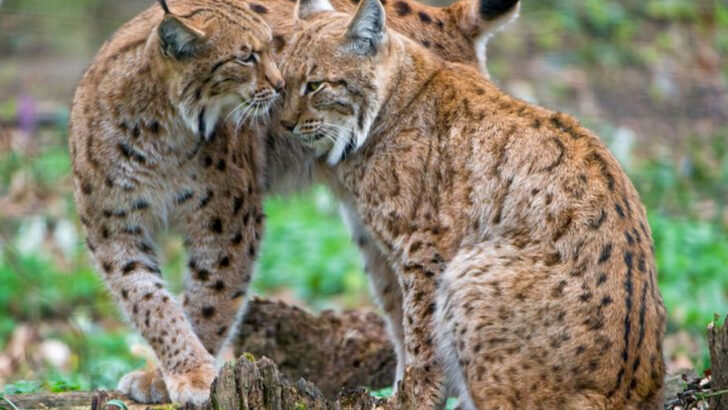Big cats may roam the wild with untamed power, but beneath their fierce exteriors lies an astonishing capacity for connection. Just like your cozy house cat curling up on your lap, these majestic predators form deep, meaningful bonds with their own kind.
From lionesses teaming up to hunt and care for their young to cheetah siblings playfully chasing each other through the grass, big cats display emotional intelligence and social bonds that rival those of our domestic companions.
In this post, we’ll explore 11 big cats that show the world that even the wildest creatures crave connection. Whether they’re nurturing their cubs or forming tight-knit prides, these animals offer a glimpse into the complex relationships that exist beyond the confines of our homes. Ready to see the softer side of the wild? Let’s dive into these big cats’ heartwarming bonds!
Lion

The king of the jungle, lions are renowned for their majestic appearance and powerful roars. However, they are also incredibly social animals.
Living in prides that can include up to 40 individuals, lions often engage in grooming and playful interactions that strengthen family bonds. These tight-knit groups provide protection and aid in hunting.
Interestingly, male lions will often form coalitions with their brothers or cousins, creating lifelong partnerships. Such camaraderie is a testament to their ability to form deep and lasting connections, reminiscent of a house cat’s loyalty to its human family.
Cheetah
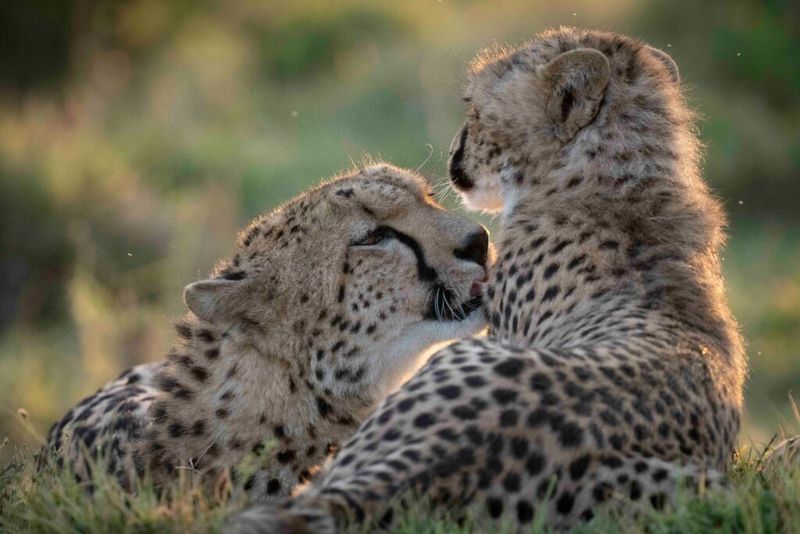
Cheetahs, the fastest land animals, rely on speed and agility to hunt. But did you know they’re also quite social? Cheetah siblings often stay together for months, playing and learning vital survival skills.
This bond between siblings is crucial, as it provides support and protection. In the wild, male cheetahs sometimes form small groups called coalitions. These coalitions, usually composed of brothers, enable them to defend territories and hunt more efficiently.
It’s like a band of brothers, where each member plays a role in ensuring the group’s success.
Tiger

Tigers are often thought of as solitary hunters, but they can also form bonds, especially between mothers and their cubs. A mother tiger is fiercely protective, teaching her young essential hunting skills and providing for them until they can fend for themselves.
This nurturing relationship is crucial for a cub’s survival. Additionally, tigers use vocalizations, such as chuffing, to communicate affection.
These interactions highlight the emotional depth and familial bonds present in these iconic big cats, reflecting the kind of connection house cats have with their families.
Leopard
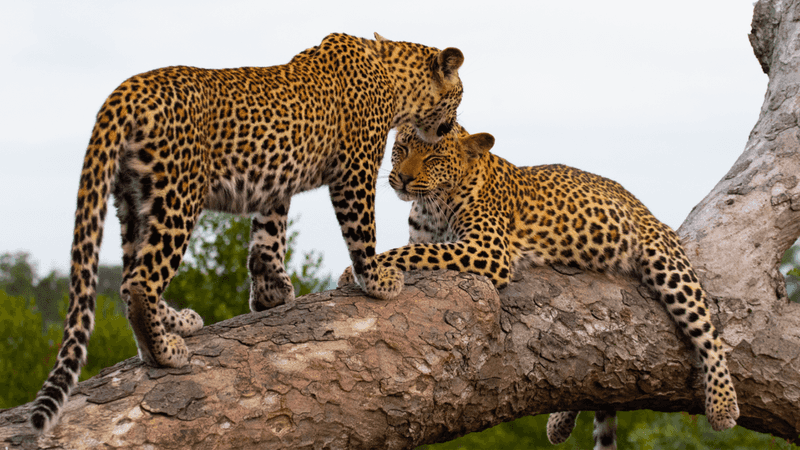
Leopards, known for their strength and agility, are solitary but have moments of tender family connections. A mother leopard’s bond with her cub is particularly strong. She raises her young alone, teaching them to hunt and survive in the wild.
During their early months, cubs are hidden in safe havens while the mother hunts. These formative years are filled with learning and affection, creating a deep bond.
Such nurturing behavior ensures the cub’s development into a capable adult, mirroring the intimate bond seen between house cats and their kittens.
Snow Leopard
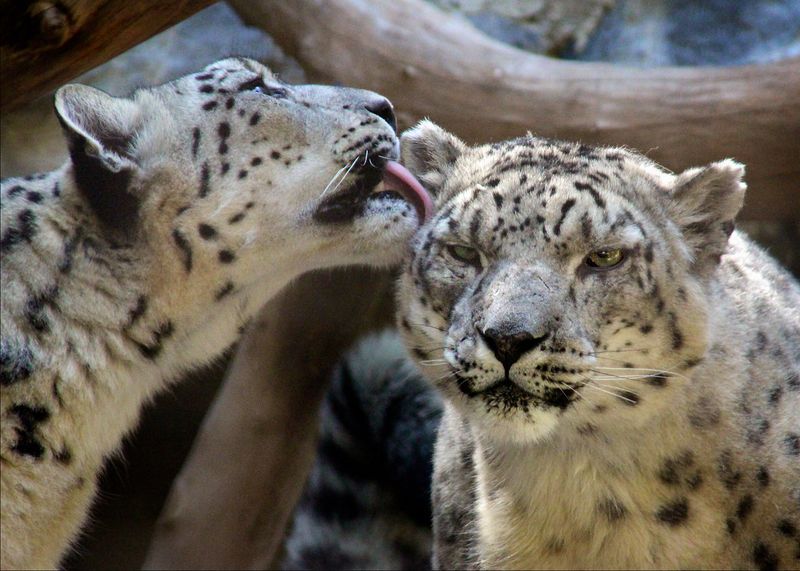
Snow leopards, the elusive ghosts of the mountains, exhibit remarkable family bonds. Mothers raise their cubs in harsh, snowy terrains, where survival demands cooperation and resilience.
These mothers are attentive, shielding their young from predators and teaching them to navigate the rugged landscape. The cubs’ playful interactions and reliance on their mother highlight a relationship built on trust and care.
This nurturing environment fosters strong ties, ensuring the survival of these magnificent creatures, and mirrors the deep connections that house cats develop with their owners.
Jaguar
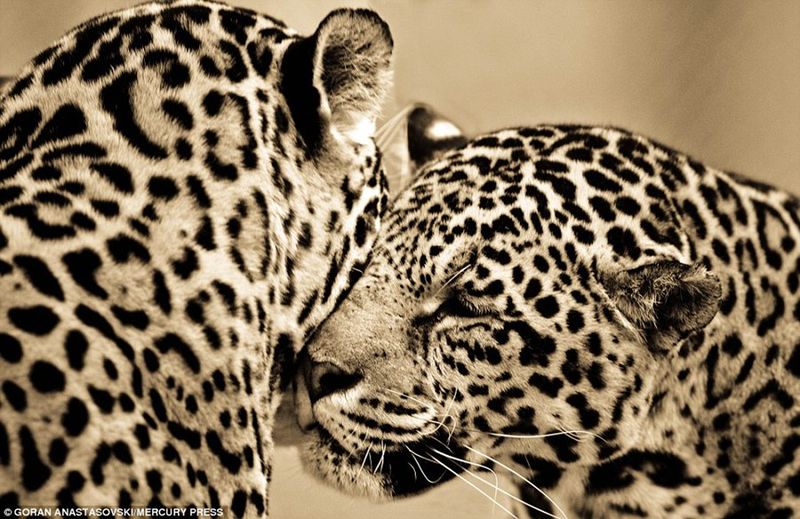
Though jaguars are solitary predators, they demonstrate affection and care in their familial relationships. Mother jaguars diligently raise their cubs, imparting vital hunting skills needed for the dense rainforest habitat.
The cubs depend on their mother for guidance, learning through playful mimicry and observation. These interactions create a bond founded on trust and learning, essential for the cubs’ survival.
Such nurturing behavior is indicative of the profound connections that can form even among solitary creatures, similar to the bonds that house cats form with their human companions.
Cougar
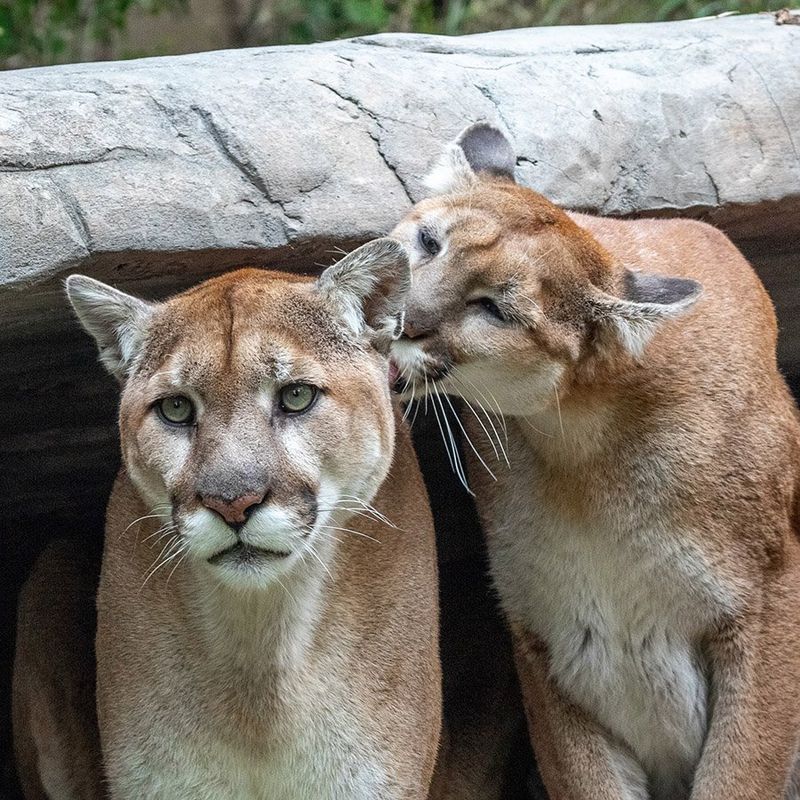
Cougars, also known as mountain lions, are solitary yet possess a strong maternal instinct. A cougar mother dedicates herself to raising her cubs, ensuring they develop the skills necessary for independence.
Her guidance and protection create a nurturing atmosphere where cubs learn to hunt and survive. The intimate bond between a mother and her young is evident in their playful interactions and shared experiences.
This familial closeness mirrors the relationship between house cats and their kittens, emphasizing the depth of connections in the animal kingdom.
Lynx
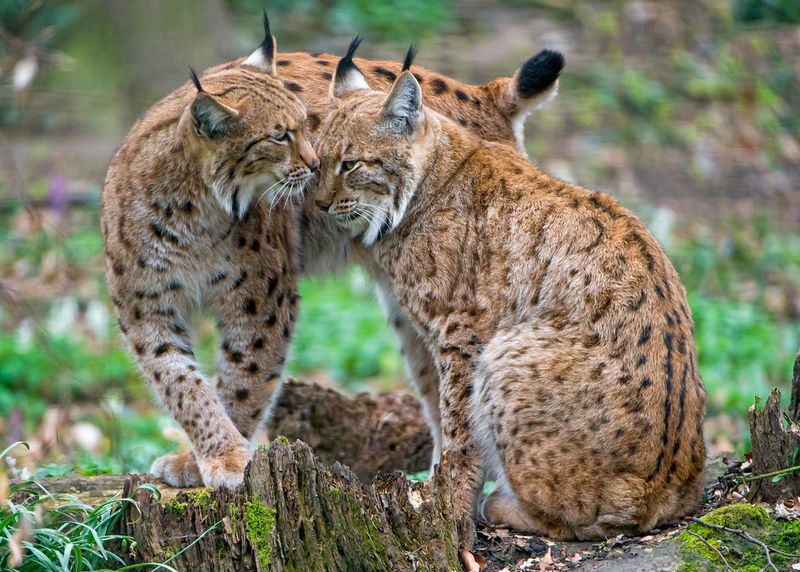
Lynxes, with their tufted ears and striking appearance, showcase remarkable family dynamics. A lynx mother is devoted, often raising her kittens in secluded dens to shield them from the cold and predators.
Her careful instruction in hunting and survival creates a foundation of trust and dependence. The playful antics of lynx kittens, as they explore their world, are a testament to the strong bond they share with their mother.
Such interactions foster a deep connection, akin to the affectionate relationships formed by house cats with their human families.
Serval
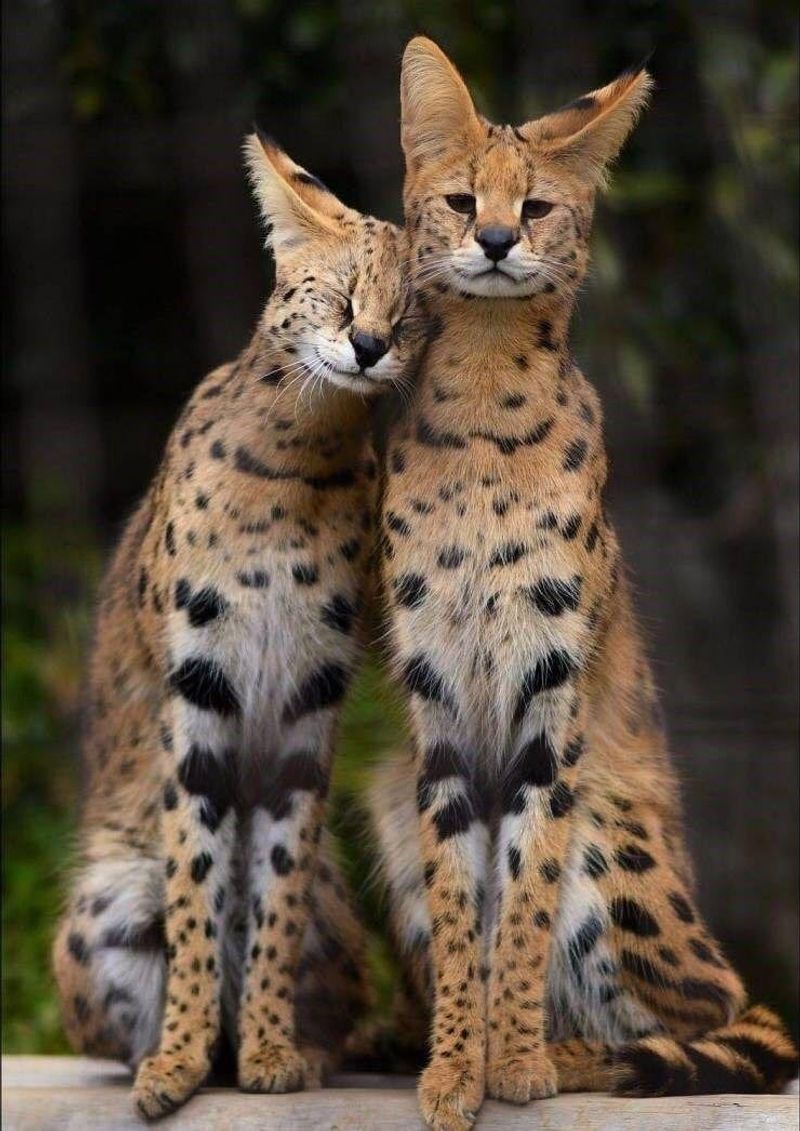
Servals, with their long legs and distinct spots, are solitary hunters but form strong bonds with their offspring. A mother serval’s attentiveness ensures her kittens’ survival, teaching them essential skills for hunting in the savannah.
These lessons are delivered with care, creating a nurturing environment where trust and affection flourish. The playful exploration of serval kittens, guided by their mother’s wisdom, highlights the strength of their familial ties.
This close-knit relationship is reminiscent of the bonds house cats form with their caregivers, emphasizing the universal nature of affection.
Caracal
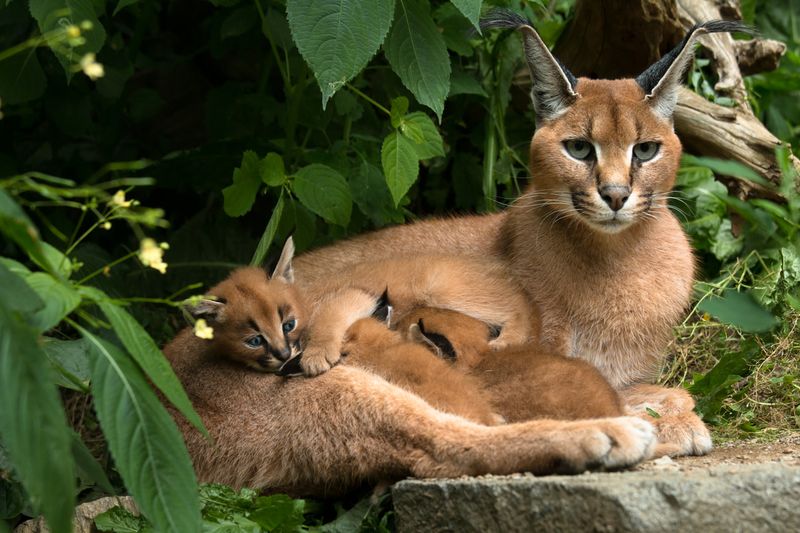
Caracals, with their striking ear tufts and sleek physiques, are solitary yet develop profound bonds with their young. A caracal mother is fiercely protective, teaching her kittens the intricacies of hunting and survival.
Her patience and guidance create a safe space for learning, where trust and affection are the cornerstones. These familial interactions emphasize the importance of maternal bonds, paralleling the deep connections seen in house cats with their human companions.
The playful nature of caracal kittens underscores the joy and warmth within these relationships.
Clouded Leopard
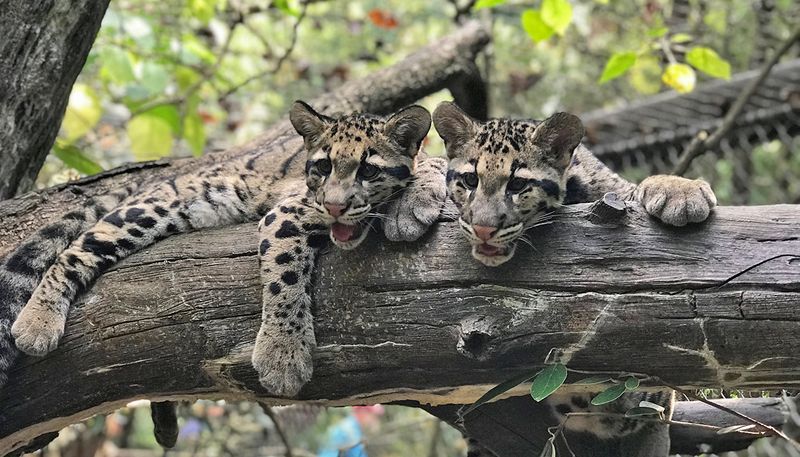
Clouded leopards, with their distinctive coat patterns, are arboreal experts who form strong maternal bonds. A mother clouded leopard meticulously raises her cubs, teaching them the art of climbing and hunting in the dense rainforest.
Her dedication and nurturing instincts ensure her cubs’ survival and independence. These familial bonds are characterized by trust and playful interactions, highlighting the depth of their connection.
Such relationships are akin to the bonds formed by house cats with their families, showcasing the universal nature of love and care in the animal kingdom.

